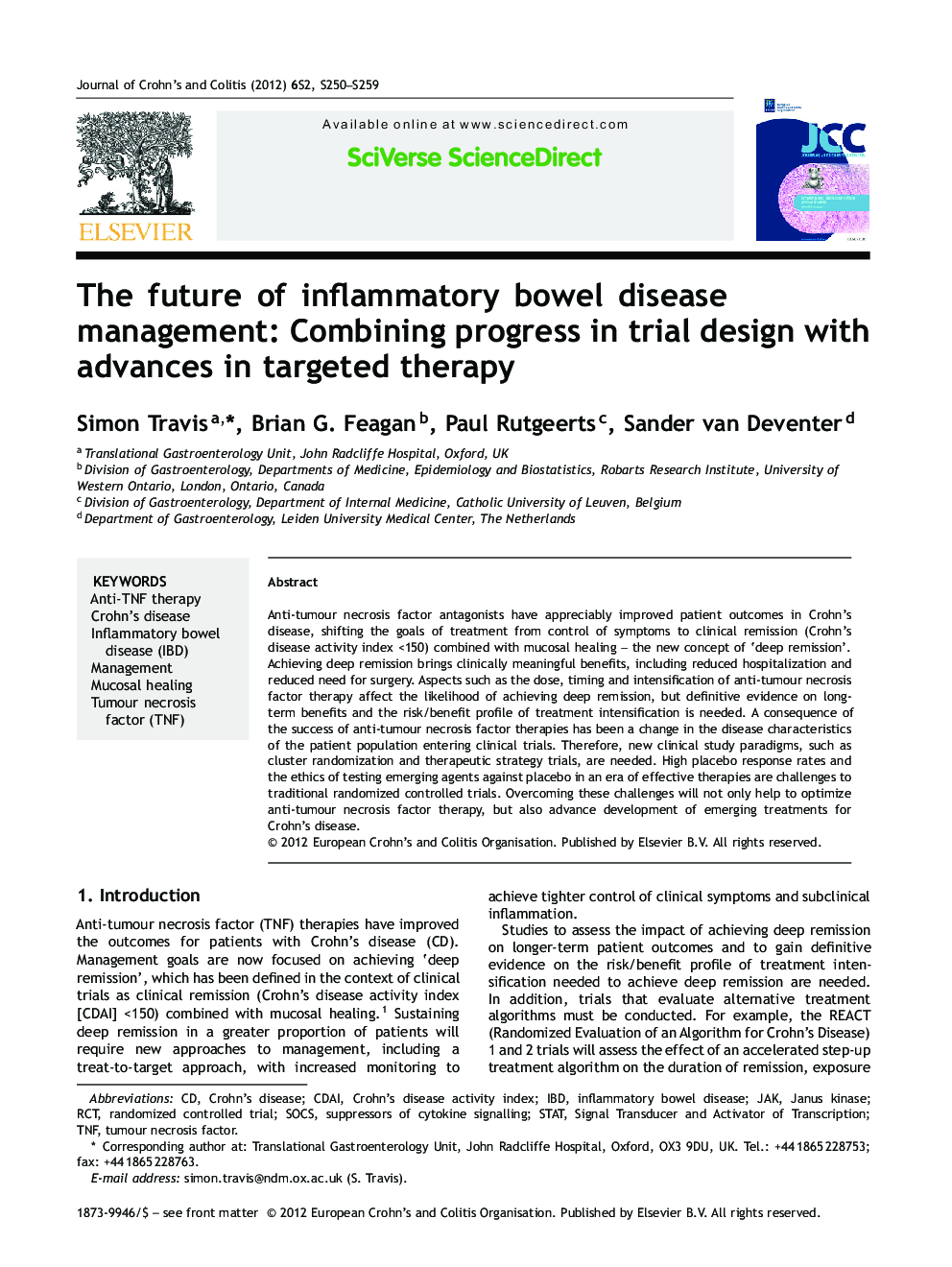| Article ID | Journal | Published Year | Pages | File Type |
|---|---|---|---|---|
| 3312815 | Journal of Crohn's and Colitis | 2012 | 10 Pages |
Anti-tumour necrosis factor antagonists have appreciably improved patient outcomes in Crohn's disease, shifting the goals of treatment from control of symptoms to clinical remission (Crohn's disease activity index <150) combined with mucosal healing – the new concept of ‘deep remission’. Achieving deep remission brings clinically meaningful benefits, including reduced hospitalization and reduced need for surgery. Aspects such as the dose, timing and intensification of anti-tumour necrosis factor therapy affect the likelihood of achieving deep remission, but definitive evidence on long-term benefits and the risk/benefit profile of treatment intensification is needed. A consequence of the success of anti-tumour necrosis factor therapies has been a change in the disease characteristics of the patient population entering clinical trials. Therefore, new clinical study paradigms, such as cluster randomization and therapeutic strategy trials, are needed. High placebo response rates and the ethics of testing emerging agents against placebo in an era of effective therapies are challenges to traditional randomized controlled trials. Overcoming these challenges will not only help to optimize anti-tumour necrosis factor therapy, but also advance development of emerging treatments for Crohn's disease.
